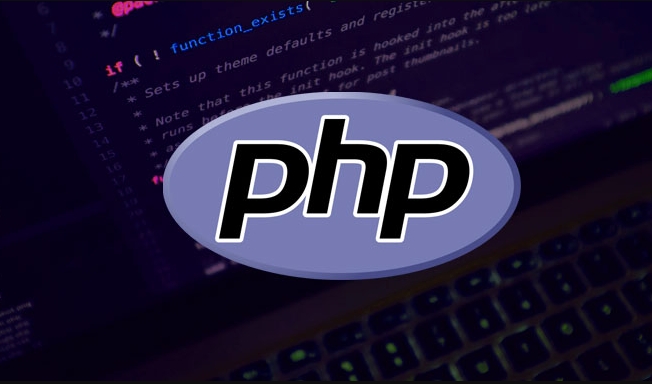A pure function in PHP is a function that always returns the same output for the same input and has no side effects. 1. It must produce consistent output based on input alone. 2. It must not modify or depend on external state such as global variables, files, or databases. 3. It should have no hidden dependencies or observable side effects. Pure functions improve predictability, testability, and maintainability of code and are ideal for utility functions, calculations, and transformations. Examples include formatting currency, converting strings to slugs, and array operations like mapping or filtering. Impure functions may access global variables, perform I/O operations, use random or time functions, or trigger events, all of which introduce unpredictability and complicate testing and debugging.

A pure function in PHP is a function that, given the same input, will always return the same output and has no side effects. That means it doesn’t modify any external state — like global variables, files, or databases — and doesn’t rely on or change anything outside its own scope.

Why purity matters
Pure functions are important because they make your code more predictable, easier to test, and simpler to debug. Since they don’t depend on or alter external data, you can reason about them independently of the rest of your application.

For example:
function add(int $a, int $b): int {
return $a $b;
}This add function is pure. It only uses its inputs and returns a consistent result every time.

On the other hand:
$factor = 2;
function multiplyWithGlobal(int $a): int {
global $factor;
return $a * $factor;
}This one isn't pure because it relies on a global variable, which could change elsewhere in your code and affect the function's behavior.
Characteristics of a pure function
- Consistent output: Same input → same output
- No side effects: Doesn’t modify external state (globals, I/O, etc.)
- No hidden dependencies: Only uses what’s passed into it
These traits make pure functions ideal for reusable logic and functional programming patterns.
When to use pure functions
You don’t have to make every function pure, but using them where appropriate can improve your code quality. They’re especially useful when:
- Writing utility/helper functions
- Doing calculations or transformations
- Creating functions used in testing or caching
For instance, formatting a date based on input or converting an array to JSON are good candidates for pure functions.
Some real-world examples:
- A function that formats currency
- One that converts strings to slugs
- Any mapping or filtering operation on arrays
Side effects to watch out for
Even if a function looks simple, it might still be impure. Common red flags include:
- Accessing or modifying global variables (
global,$GLOBALS) - Reading from or writing to a file/database/session
- Using
rand()ortime()(because they produce different results) - Triggering events or logging inside the function
Avoiding these keeps your function clean and predictable.
That’s basically it. Pure functions aren’t a strict rule in PHP, but recognizing them — and knowing when to use them — helps write better, more maintainable code.
The above is the detailed content of What is a pure function in the context of PHP?. For more information, please follow other related articles on the PHP Chinese website!

Hot AI Tools

Undress AI Tool
Undress images for free

Undresser.AI Undress
AI-powered app for creating realistic nude photos

AI Clothes Remover
Online AI tool for removing clothes from photos.

Clothoff.io
AI clothes remover

Video Face Swap
Swap faces in any video effortlessly with our completely free AI face swap tool!

Hot Article

Hot Tools

Notepad++7.3.1
Easy-to-use and free code editor

SublimeText3 Chinese version
Chinese version, very easy to use

Zend Studio 13.0.1
Powerful PHP integrated development environment

Dreamweaver CS6
Visual web development tools

SublimeText3 Mac version
God-level code editing software (SublimeText3)
 PHP Variable Scope Explained
Jul 17, 2025 am 04:16 AM
PHP Variable Scope Explained
Jul 17, 2025 am 04:16 AM
Common problems and solutions for PHP variable scope include: 1. The global variable cannot be accessed within the function, and it needs to be passed in using the global keyword or parameter; 2. The static variable is declared with static, and it is only initialized once and the value is maintained between multiple calls; 3. Hyperglobal variables such as $_GET and $_POST can be used directly in any scope, but you need to pay attention to safe filtering; 4. Anonymous functions need to introduce parent scope variables through the use keyword, and when modifying external variables, you need to pass a reference. Mastering these rules can help avoid errors and improve code stability.
 How to handle File Uploads securely in PHP?
Jul 08, 2025 am 02:37 AM
How to handle File Uploads securely in PHP?
Jul 08, 2025 am 02:37 AM
To safely handle PHP file uploads, you need to verify the source and type, control the file name and path, set server restrictions, and process media files twice. 1. Verify the upload source to prevent CSRF through token and detect the real MIME type through finfo_file using whitelist control; 2. Rename the file to a random string and determine the extension to store it in a non-Web directory according to the detection type; 3. PHP configuration limits the upload size and temporary directory Nginx/Apache prohibits access to the upload directory; 4. The GD library resaves the pictures to clear potential malicious data.
 Commenting Out Code in PHP
Jul 18, 2025 am 04:57 AM
Commenting Out Code in PHP
Jul 18, 2025 am 04:57 AM
There are three common methods for PHP comment code: 1. Use // or # to block one line of code, and it is recommended to use //; 2. Use /.../ to wrap code blocks with multiple lines, which cannot be nested but can be crossed; 3. Combination skills comments such as using /if(){}/ to control logic blocks, or to improve efficiency with editor shortcut keys, you should pay attention to closing symbols and avoid nesting when using them.
 How Do Generators Work in PHP?
Jul 11, 2025 am 03:12 AM
How Do Generators Work in PHP?
Jul 11, 2025 am 03:12 AM
AgeneratorinPHPisamemory-efficientwaytoiterateoverlargedatasetsbyyieldingvaluesoneatatimeinsteadofreturningthemallatonce.1.Generatorsusetheyieldkeywordtoproducevaluesondemand,reducingmemoryusage.2.Theyareusefulforhandlingbigloops,readinglargefiles,or
 Tips for Writing PHP Comments
Jul 18, 2025 am 04:51 AM
Tips for Writing PHP Comments
Jul 18, 2025 am 04:51 AM
The key to writing PHP comments is to clarify the purpose and specifications. Comments should explain "why" rather than "what was done", avoiding redundancy or too simplicity. 1. Use a unified format, such as docblock (/*/) for class and method descriptions to improve readability and tool compatibility; 2. Emphasize the reasons behind the logic, such as why JS jumps need to be output manually; 3. Add an overview description before complex code, describe the process in steps, and help understand the overall idea; 4. Use TODO and FIXME rationally to mark to-do items and problems to facilitate subsequent tracking and collaboration. Good annotations can reduce communication costs and improve code maintenance efficiency.
 Quick PHP Installation Tutorial
Jul 18, 2025 am 04:52 AM
Quick PHP Installation Tutorial
Jul 18, 2025 am 04:52 AM
ToinstallPHPquickly,useXAMPPonWindowsorHomebrewonmacOS.1.OnWindows,downloadandinstallXAMPP,selectcomponents,startApache,andplacefilesinhtdocs.2.Alternatively,manuallyinstallPHPfromphp.netandsetupaserverlikeApache.3.OnmacOS,installHomebrew,thenrun'bre
 How to access a character in a string by index in PHP
Jul 12, 2025 am 03:15 AM
How to access a character in a string by index in PHP
Jul 12, 2025 am 03:15 AM
In PHP, you can use square brackets or curly braces to obtain string specific index characters, but square brackets are recommended; the index starts from 0, and the access outside the range returns a null value and cannot be assigned a value; mb_substr is required to handle multi-byte characters. For example: $str="hello";echo$str[0]; output h; and Chinese characters such as mb_substr($str,1,1) need to obtain the correct result; in actual applications, the length of the string should be checked before looping, dynamic strings need to be verified for validity, and multilingual projects recommend using multi-byte security functions uniformly.
 Learning PHP: A Beginner's Guide
Jul 18, 2025 am 04:54 AM
Learning PHP: A Beginner's Guide
Jul 18, 2025 am 04:54 AM
TolearnPHPeffectively,startbysettingupalocalserverenvironmentusingtoolslikeXAMPPandacodeeditorlikeVSCode.1)InstallXAMPPforApache,MySQL,andPHP.2)Useacodeeditorforsyntaxsupport.3)TestyoursetupwithasimplePHPfile.Next,learnPHPbasicsincludingvariables,ech






